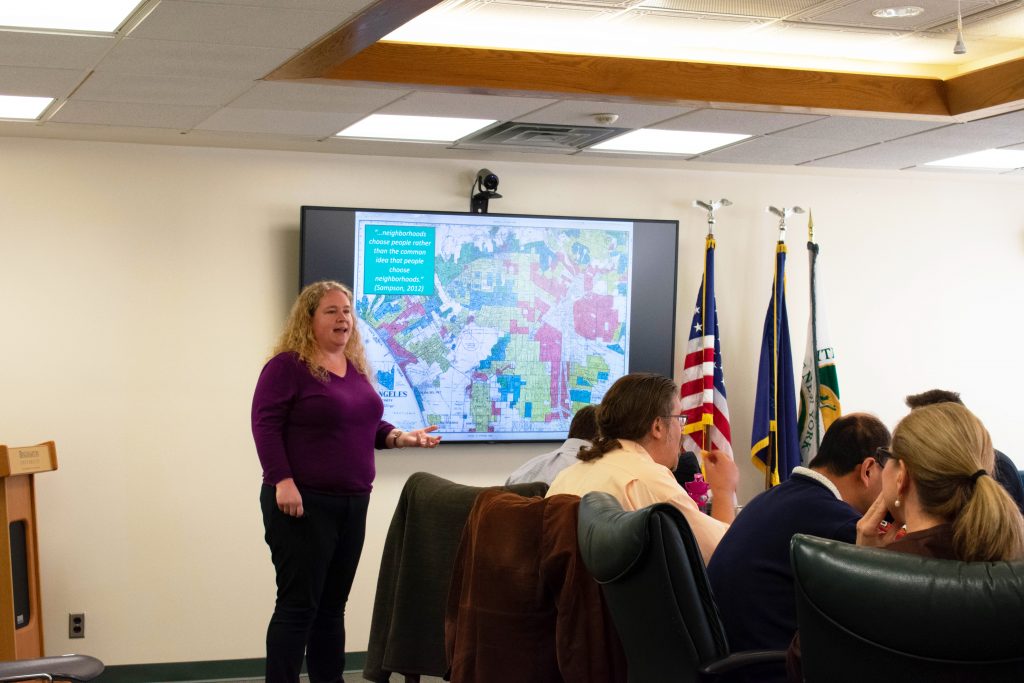On Thursday, approximately 30 members of the Sustainable Communities Transdisciplinary Area of Excellence (TAE) gathered to hear from Louisa Holmes, a TAE committee member and an assistant professor of geography and environmental studies.
The TAE, which consists of faculty members who have backgrounds in a range of subjects, acts as an initiative to combine the perspectives of different disciplines to take on a more holistic approach to research in sustainable communities, according to Binghamton University’s website. Holmes said she is primarily concerned with incorporating population health into current models of sustainable communities.
According to Holmes, health education is often a topic that is overlooked in the framework of sustainable communities. During her talk, she mentioned that factors such as food insecurity, quality education, gender equality, sanitation and economic growth may promote disease in certain communities.
“Health and accessibility [are] inextricably connected,” Holmes said. “Income inequality is related to poor health outcomes … The U.S. ranks high in income inequality and worse on the index of health.”
This was a common theme throughout her talk, in which she said that there cannot be one without the other. Holmes proposed planning communities around a 20-minute neighborhood, meaning that important locations such as grocery stores, hospitals, schools and more are located within a 20-minute radius from neighborhoods.
Holmes explained that although cities are not planned according to this model, it could have profound impacts on both a social and ecological level.
Mark Blumler, an associate professor of geography, was in attendance for the talk. He applauded Holmes for her ability to discuss the complex health issues in a concise way.
“Our health care system is screwed up in multiple ways, such as overemphasizing drugs and surgery rather than prevention,” Blumler wrote in an email. “I was amazed at how much [Professor] Holmes covered, and that she was able to go through so much material so rapidly yet without being confusing.”
In addition, Blumler called for more research that would shift priorities away from pharmaceutical drugs and instead toward the social factors that induce disease and solutions to foster prevention.
A majority of attendees were members of the TAE committee, faculty members interested in Holmes’ work and some of her friends. The intimate setting allowed for a thorough Q&A session to take place at the end of the talk.
Several students said TAE talks are often tailored to a specific community that excludes undergraduate students. Gabby Ng, a sophomore majoring in integrative neuroscience, said she was not aware about the TAE event. Still, she said she would be interested in attending future events to learn more about sustainability.
“I feel like sustainable communities are important to raise awareness about pollution,” Ng said. “Also, it’s important to educate the public, especially younger adults and children, about how to help the environment.”
Samantha Wong, a junior majoring in environmental studies, was also not in attendance at the TAE talk; however, she said she feels strongly about the importance of sustainable communities.
“I feel like implementing sustainable communities is important for mitigating the effects of climate change and help[s] reduce our impact on furthering it,” Wong said.



